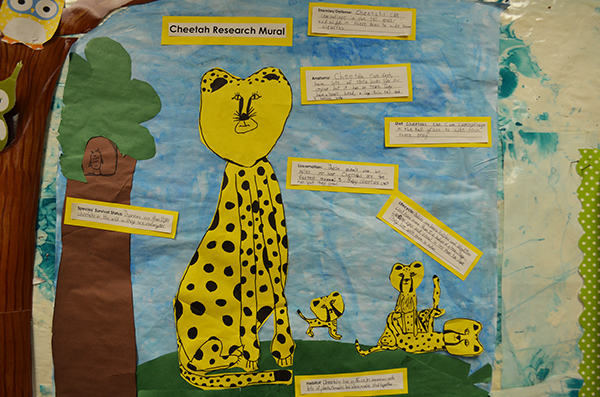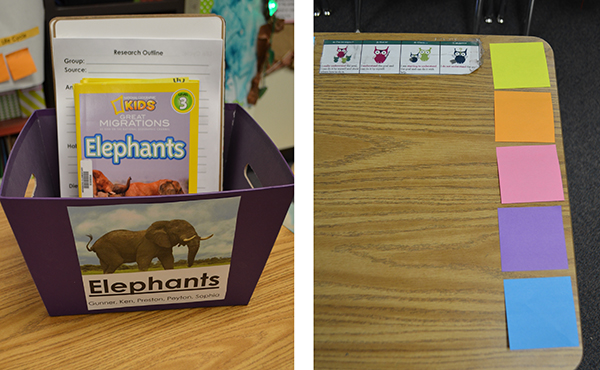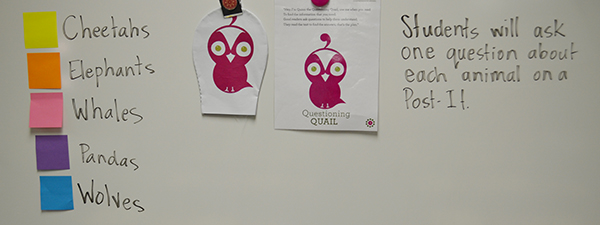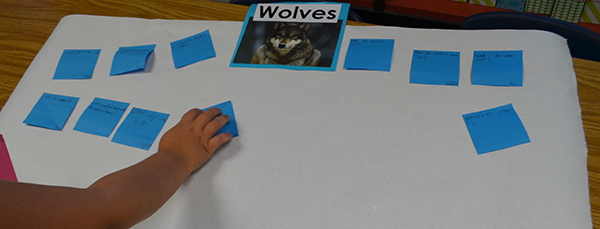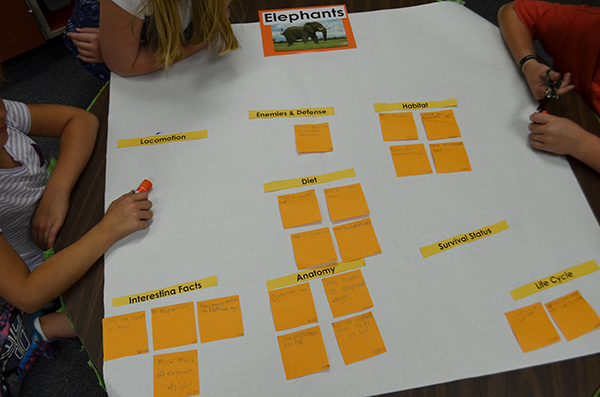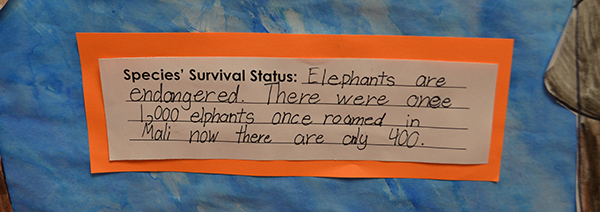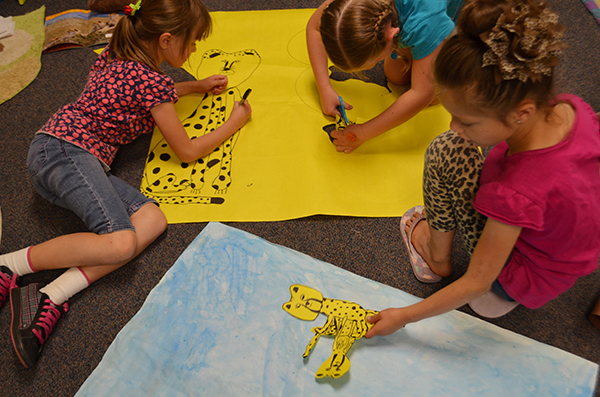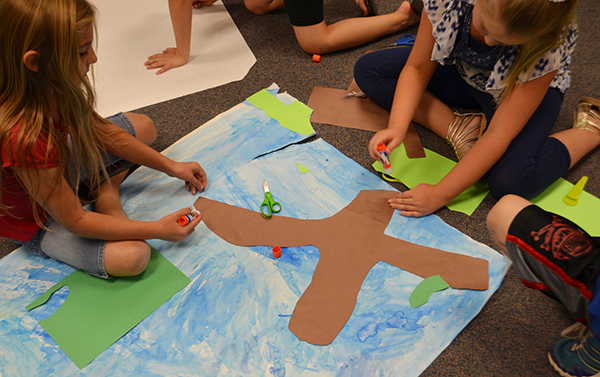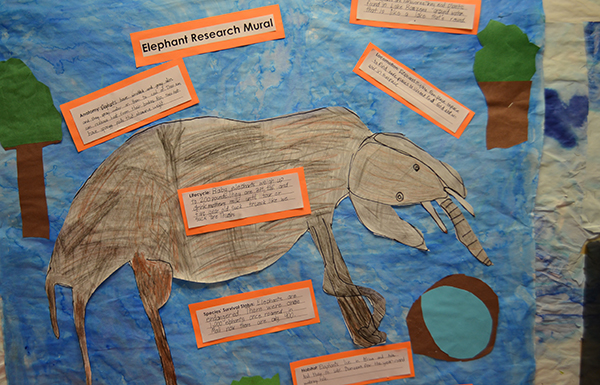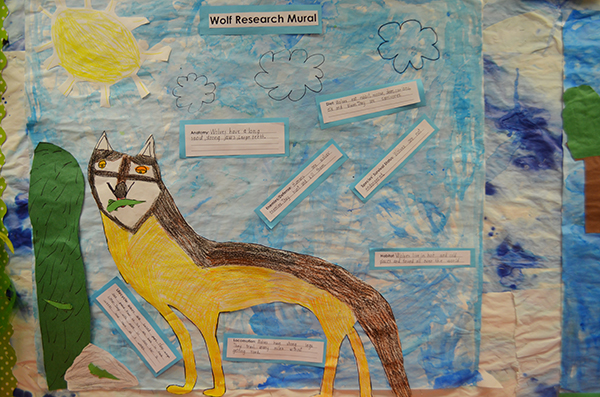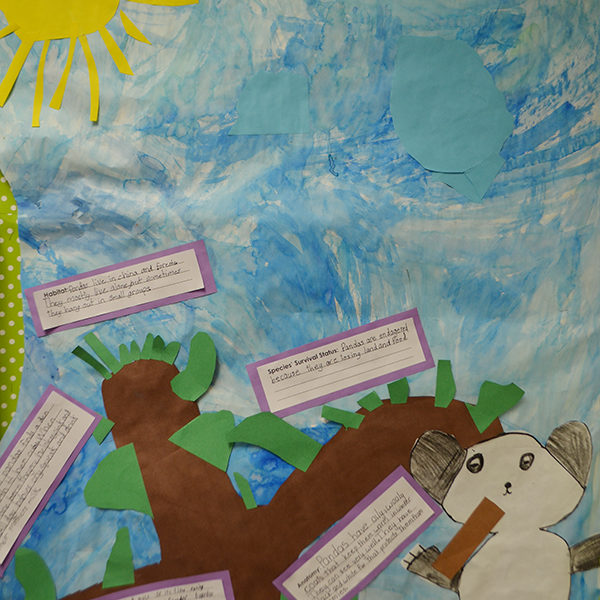Spring fever is full force in my classroom and I have tried every trick of the trade to keep my students calm and engaged with little success. After taking a Common Core ELA class through my district, I found the perfect solution–animal research murals. In this project, students have ample time to discuss, share and collaborate, allowing them to channel some of their energy and excitement while meeting critical research standards.
I checked out 5 different sets of National Geographic Kids animal books and assigned each group an animal in their reading range. I set up research baskets with Post-Its, pencils, set of books and white boards; I put their names on the front of each basket. I also gathered colored Post-Its and 5 pieces of butcher block paper for recording group questions.
Before starting research, we discussed the importance of asking questions prior to reading. I explained that these questions guide group’s research because each group would teach the class about their assigned animal. I gave students 5 different colored Post-Its (each animal has its own color) and had them record one question they had about each animal. After recording their questions, students placed their Post-Its on each animal’s question poster (the butcher block paper).
On the first day of research, I had students sort the questions into categories: anatomy, diet, habitat, locomotion, life cycle, enemies/defense, survival status and interesting facts. Students then were in charge of choosing specific category or categories to research. During the next two days, they read the National Geographic book and summarized the information on Post-Its. Groups checked their question poster to ensure that all questions were answered. Then they took these key terms Post-Its and wrote complete sentences on lined paper. As groups worked, I roved and assisted as needed. When groups finished, we edited the sections together and students published their section(s) using thin Sharpies.
On the fourth day, I gave each group a large piece of white butcher block paper. They used watercolor to paint a background; while they dried, they made the animal and habitat with colored butcher block paper. Together they decided where to glue each research section and assigned sections to share. Students practiced presenting their reports to me outside while the other groups worked.
As a culmination, groups shared their murals with the class; students had a chance to ask questions and give feedback. I was impressed with the depth of knowledge each group gained from this project. While they were still talkative and a little loud, they were highly engaged and learned excellent research skills. Many said this was their favorite project (even topping our themed cooking projects–that says a lot!).
This project comes from Comprehension and Collaboration: Inquiry Circles In Action by Stephanie Harvey and Harvey Daniels. Interested in additional animal research projects? Download our Differentiated Animal Research Report Unit here.

